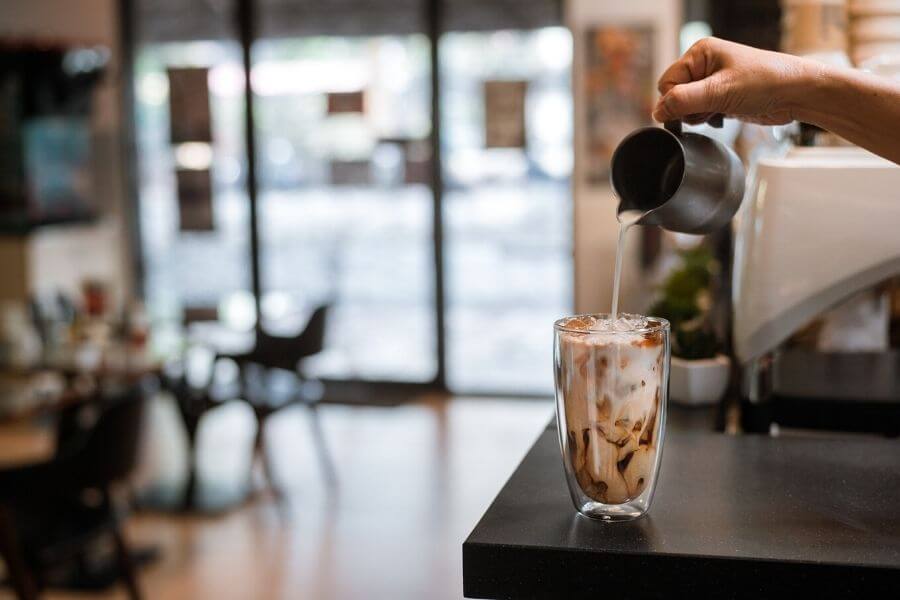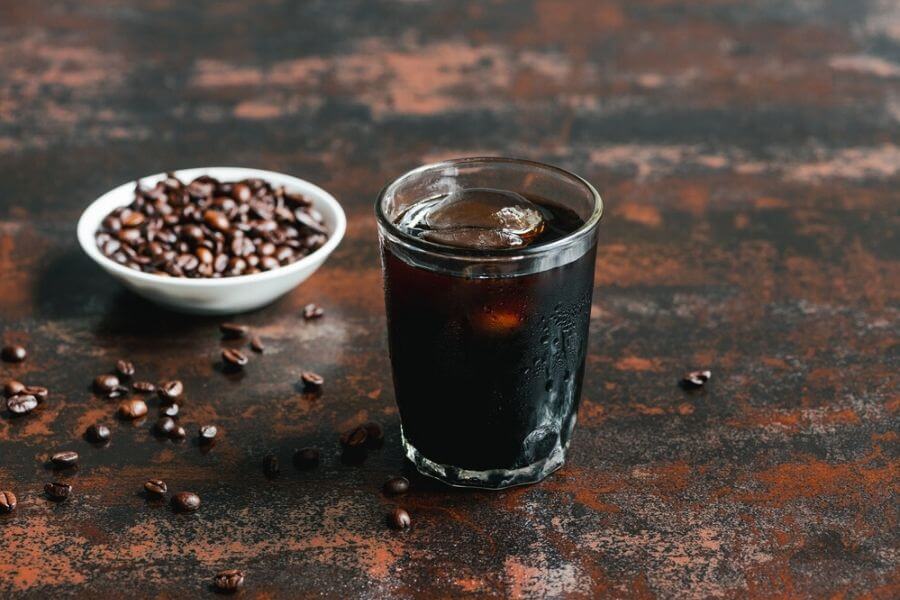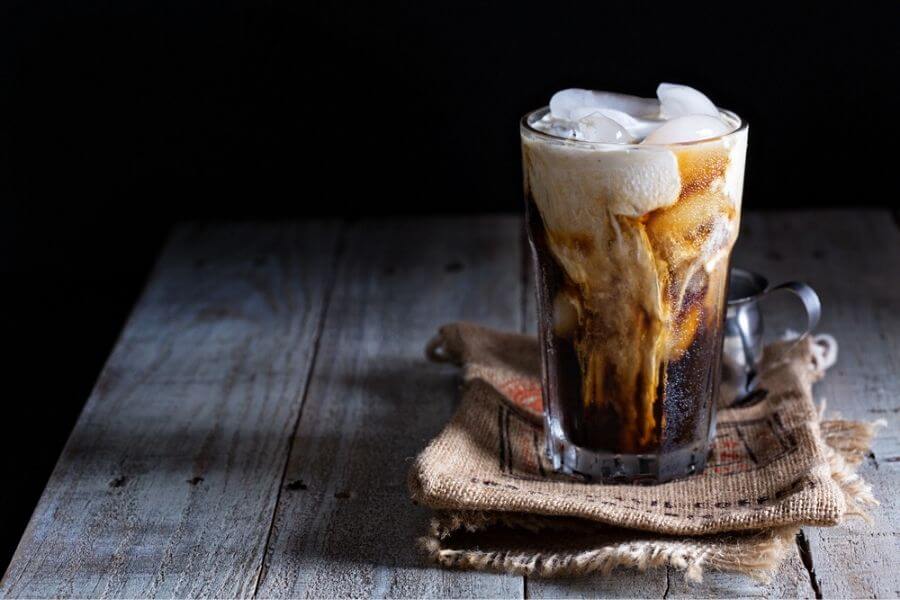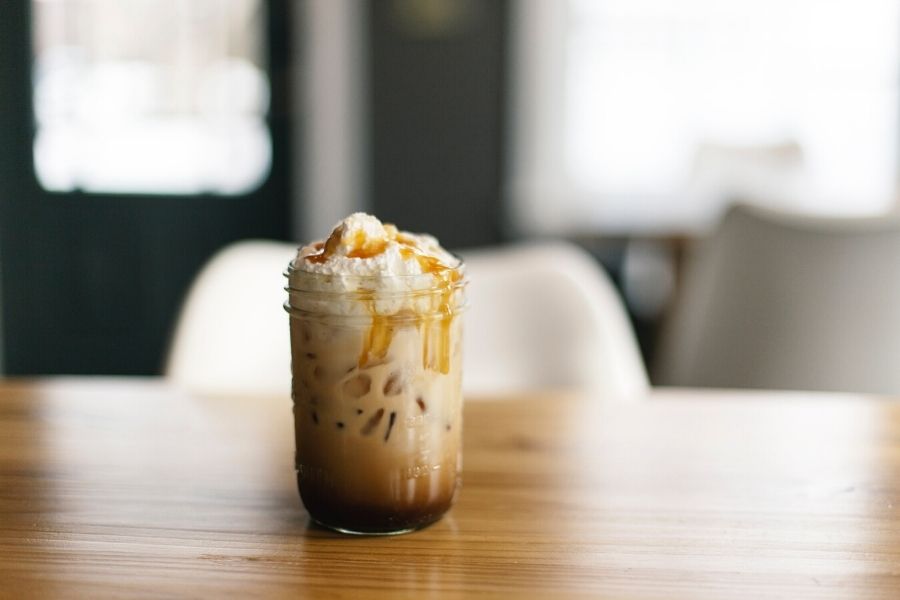Iced Coffee vs Cold Brew: Which Is Better?
Recently, I saw a bit of a Karen online, complaining that she ordered iced coffee but received warm coffee with blocks of ice added to it, making a point of the incompetence of the cafe. To most people, this is a culinary crime, but I couldn’t help but laugh. You see, that’s exactly what iced coffee is and the cafe wasn’t in the wrong.
What she wanted, I assume, was a cold coffee, though I’ve noticed the inverse too— the disbelief at cold brew coffee served warm. Karen’s tantrum inspired me to explain the ins, outs, and differences, so you don’t make the same mistake she did.
Here’s what’s coming up in this iced coffee vs cold brew match-up:
- Cold coffees explained
- Iced coffee vs cold brew: Which is healthier
- Cold brew vs iced coffee: Which tastes better?
- Iced coffee vs cold brew: Head to head
- What’s the best cold coffee?
What’s the Difference Between Cold Brew and Iced Coffee?
Let’s say you’ve got two coffees in front of you. They’re both of the same bean, from the same batch, and roasted to the same degree. Both were both served in equal amounts, at room temperature, without any flavor enhancers.
For all intents and purposes, these two coffees are identical. Yet, when you taste them, their profiles are entirely different. How is this possible? What’s the difference between iced coffee and cold brew?
The answer is simple: they were brewed differently.
What Is Iced Coffee?
Some of you may not like the answer to this, but iced coffee is — quite literally — regular coffee (or in the case of Frappuccinos, plain, old espresso). I have nothing against iced coffee, but there is absolutely nothing remarkable about it.
By definition, iced coffee is any coffee that has been cooled, be it by cold milk, time, or ice blocks in Karen’s case.
Have you ever committed the crime of making a cuppa, then subsequently forgetting to drink it? And when you remember it, it’s too late because it’s gone cold? Voila, you have mastered the art of brewing iced coffee.
In all seriousness though, this is not to say that iced coffee is bad. Unlike forgotten coffee, it’s deliberately cooled to make it more enjoyable.

What Is Cold Brew Coffee?
Cold brew coffee is what iced coffee wants to be when it grows up, but don’t be misled by the name. It doesn’t refer to how you enjoy it, but how it’s brewed.
We covered this in our oh-so-cool cold brewer buyer’s guide, so head there if you’d like to get into the nitty-gritty. Suffice to say, cold brewing is unlike every other method because heat doesn’t play a part in flavor extraction.
Cold brew coffee is brewed by soaking grounds in cool or cold water for at least 12 hours, with some needing as many as 24 hours to extract.
You may be shaking your fist at the sky, wondering why anyone would want to wait 12 plus hours just to enjoy a cup of coffee, but wait until you taste it.
All the nasty stuff you find in coffee — unhealthy chemicals, bitter and unpleasant flavors, and acidity — are heat activated. Cold brewing doesn’t give these factors a chance to see the light of day, so you’ll have smoother, better rounded, wholesome coffee without sacrificing any caffeine.
Is Cold Brew the Same as Iced Coffee?
Ultimately iced coffee speaks to how coffee is served, while cold brew denotes how it was made. But here’s the funny part:
Since iced coffee is chilled coffee, and cold brews are made (and can be enjoyed cold), that means that sometimes iced coffees are cold brew, and that cold brew can be made into iced coffee.
Although the two mean entirely different things, the line that divides them is not so thick after all.
Iced Coffee vs Cold Brew: Which is Healthier?
We can’t truly gauge which iced coffees are unhealthy because there are too many variables. There’s a big difference between coffee that’s cooled with ice or cold water, and a caramel-topped, creme brulee flavored saccharine-sweet iced cappuccino.
But as a general rule, two factors make iced coffee less healthy than cold brew overall.
First, if your iced coffee was brewed hot, all the junk that cold brew blocks makes its way into your joe.
Second, if you are ordering that creme brulee iced cappuccino, you’re taking in a bean-zillion more calories courtesy of the added sugar and dairy. Since the novelty of most iced coffee is that it’s rich, sweet, and creamy, your waistline won’t like it as much as your taste buds will.
In fact, one Reuters report explains that the worst offenders are equal to eating a hot dinner in terms of calories. For coffee, that’s terrifying.

Does Cold Brew Coffee Have Less Acid?
As a matter of fact, yes it does, which means it’s far healthier for those who struggle with heartburn or other problems that acidity exacerbates. But that’s not the only advantage to drinking cold brews.
According to Healthline, cold brew coffee has all the perks of hot brews including cardiovascular benefits, energy boosts, mood improvements, and antioxidants for vitality. It may also help prevent a number of illnesses including Parkinson’s, Alzheimer’s, and diabetes.
While regular coffee has some of these benefits, there are more drawbacks because of the harmful compounds released when coffee beans are heated. Cold brewing is the clear winner here.
Cold Brew vs Iced Coffee: Which Tastes Better?
Taste is always subjective, so this is ultimately up to each individual coffee drinker. But there are a few considerations.
Cold brewing results in better coffee when you strip everything down to nothing but the extracted java. Because of its brewing method, it produces a coffee concentrate, much like espresso, that is revered for its silky smooth texture, bright full-bodied flavor, and boldness without bitterness.
But, remember the caramel-topped, creme brulee cappuccino I mentioned? Who would say no to that? Iced coffees are made to be indulgent and that means they’re so tasty it’s ridiculous.
However, since our website is dedicated to coffee and not desserts (unfortunately), I have to give cold brewing the point here. Objectively speaking, cold brew tastes better as coffee.
Iced Coffee vs Cold Brew: Head to Head
There are few more comparisons we have to make to decide the ultimate winner, like which coffee makes less of an impact on the environment, which one is better for your budget, and which one will give you the caffeine kick you’re after. Cold brewing is two for two, so let’s see if iced coffee can make a comeback.
Production
Hot brewed iced coffee uses energy that cold brewing doesn’t. The Guardian reported that iced coffee is an environmentalism no-no on account of the plastic waste it produces. It was also found that specialist (or fad) iced coffees use ingredients that do more damage to the earth than dairy.
One could argue that cold brewers contribute to the plastic problem, but you must keep in mind that many, if not most, cold brewers take care to use “good” plastics, like Tritan, that are recyclable and BPA-free. Not to mention that beyond your fridge (which runs whether you’re cold brewing or not), cold brewers don’t suck up resources, apart from the minimal amount of water used.

Caffeine Content
One of the most commonly asked questions we get is “does cold brew coffee have more caffeine than iced coffee.” Unfortunately, no one can decide if it does or not.
There is no way to determine which has more caffeine because it depends on a number of variables.
Hot brew coffee extracts more caffeine, so it contains more than cold brew. But cold brew is a coffee concentrate and is, therefore, more caffeine dense before you dilute it (as you’re meant to).
So to answer the question, does cold-brewed coffee have more caffeine: it depends on how you prepare it. As with all coffee, the beans you use matter as well. It’s a toss-up, but at least iced coffee has finally scored a point.
If you’d like to know more about caffeine strength, read our article on the world’s strongest coffees.
Home Brewing
Iced coffee is technically easier to brew, depending on your style. Remember, it’s regular coffee, so regardless of your method (be it a French press, moka pot, pod machine, or even instant), so long as you let it chill, or pour it over ice, you’ve succeeded. Learn how to make iced coffee at home.
Whereas cold brewing is effortless, immense patience is required.
When it comes down to cold brew vs coffee makers, cold brewing deserves another point for two reasons. Cold brewing requires no skill at all, you add your grounds, add water and wait. That’s it.
Cold brewers also have a number of benefits. They don’t use electricity, so you’ll save on your power bill. They’re super compact and will fit in any kitchen. They’re portable, so you can easily carry them to work or while traveling, and they require little maintenance, beyond washing them. Most cold brewers are airtight too, so your coffee stays fresher for longer.
Value for Money
I’m sorry iced coffee, but cold brewing takes this one too, albeit on a technicality that comes with a caveat.
If you order cold brew from a cafe, it generally costs more than iced coffee. It’s not entirely clear why this is, though it’s possible that cold brew’s craft coffee status automatically pushes its price up.
However, cold brewers are much cheaper than almost all other coffee makers because of their simplicity. They’re made from plastic, so production isn’t as complicated, and for all intents and purposes, they’re water bottles.
You don’t even need a cold brewer to make cold brew. Any sealed container will do (though we do recommend you purchase one for the extras such as filters and airtight seals).
Cold brewers have extremely high value for money because of this. They cost you less money and effort but brew superior coffee.

What’s the Best Cold Coffee?
Iced coffee vs. cold brew: the winner is clear.
Cold brew tastes better, is healthier, costs you less money to brew at home, and requires no skill. The only match-up it didn’t win was its caffeine content, and that was a tie.
Iced coffee isn’t bad per se, it just pales in comparison when pitted against cold brew, which is superior in almost every single way.
Cold brewing might be excruciatingly time-consuming, but it’s absolutely worth waiting for. Iced coffee, though nothing beats it on a hot day, isn’t exactly all it’s hyped up to be.
Conclusion
So, what’s the difference between cold brew and iced coffee? To sum it up, cold brew coffee is brewed with cold water, while ice coffee is hot brewed and then chilled.
I love both, but it has to be said that cold brews are arguably the better coffee. They may cost a bit more at cafes, and home brewing won’t appeal to those with little patience, but they’re better for your body, the environment, and your taste buds — which is pretty cool if you ask me.
Iced Coffee vs Cold Brew FAQs
Is Cold Brew Sweeter Than Iced Coffee?
Cold brewing doesn’t impart the bitterness and acidity that typically extracts with heat, and so it will taste brighter and sweeter than a regular brew. However, some iced coffees have added sweeteners.
Does Iced Coffee Cause Weight Gain? Is Cold Brew Good For Weight Loss?
Coffee can help you lose weight, regardless of the type of brew, but iced coffee is notorious for its calorie count. If you are trying to slim down, you best avoid it.
Is Iced Coffee Bad For You? Can I Drink It Every Day?
Iced coffee is not inherently unhealthy, but it depends on how you’re consuming it. If it’s a hot brew on ice, there’s no reason not to enjoy it as you would any other coffee. The problem is that gimmicky, fad iced coffees tend to be high in sugar and dairy and high in calories.





